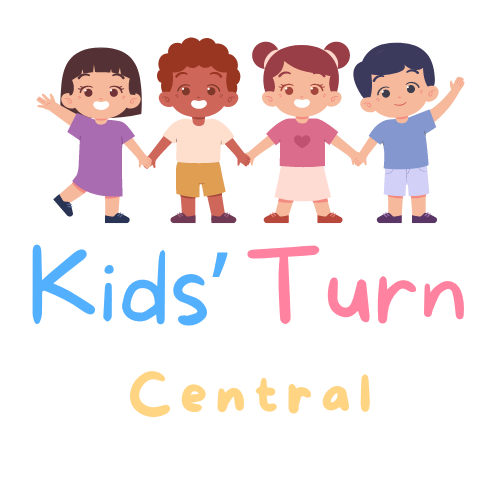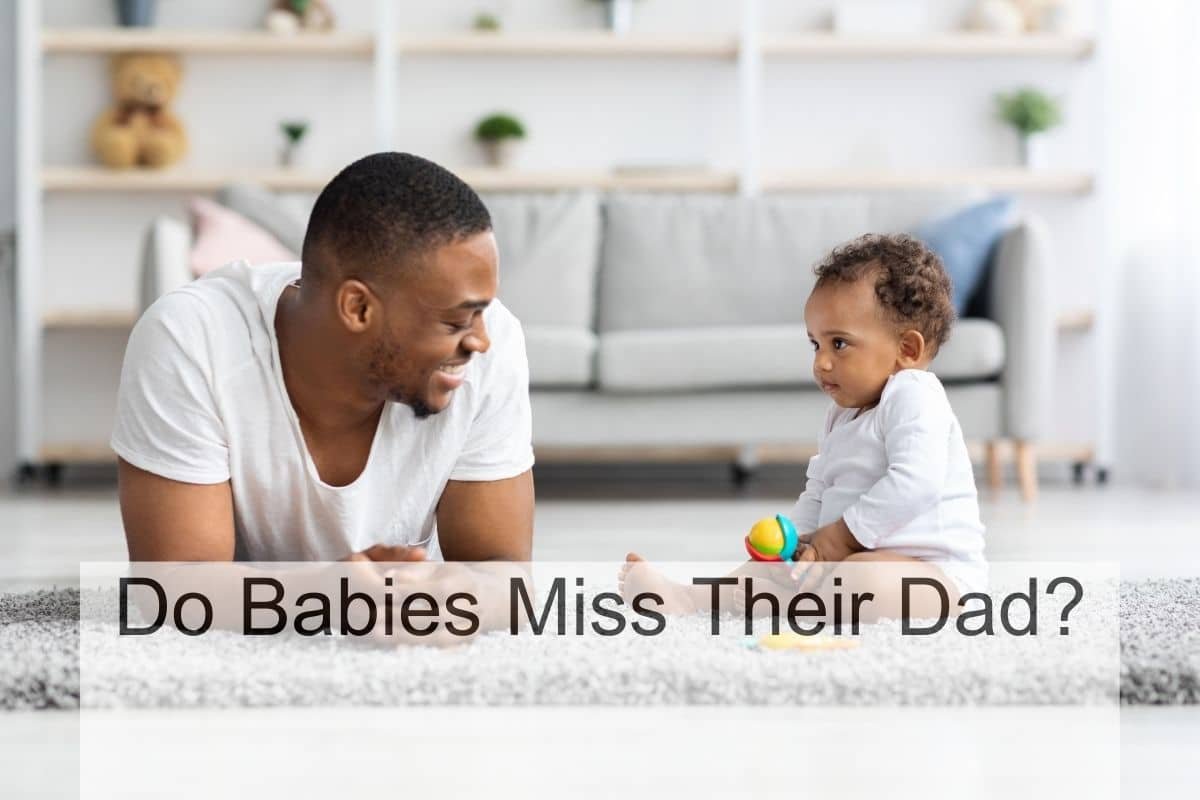As a new dad, I often wonder if my baby misses me when I’m away. It’s a common question that many fathers ask themselves, and the answer is not always clear. While most people assume that babies only need their mothers, research suggests that infants form strong attachments to both parents from an early age. In fact, babies can recognize their father’s voice and scent within the first few weeks of life.

According to experts, babies can miss their dad when he’s not around. This is because babies quickly form a strong bond with their fathers right from an early age, and this bond develops as the dad spends time with their baby. Bonding makes babies happy when their parents are around them. So, it’s important for dads to spend as much time as possible with their babies to strengthen their bond and avoid feelings of separation anxiety.
If you’re a new dad wondering if your baby misses you, the answer is yes. While it may not be as obvious as when a baby misses their mother, infants can form deep bonds with their fathers that can lead to feelings of sadness or anxiety when they are apart. However, by spending quality time with your baby and being present in their life, you can help them feel secure and loved even when you’re not around.
Understanding Attachment in Infancy

Defining Attachment
Attachment is a deep emotional bond between a child and their caregiver, which is formed in infancy. It is a crucial aspect of a child’s development as it shapes their social, emotional, and cognitive development. According to research, attachment is defined as an affectional tie that one person forms to another specific person, which is enduring across time and space.
Attachment is formed through a series of interactions between the caregiver and the infant. These interactions are influenced by the caregiver’s sensitivity and responsiveness to the infant’s needs. The attachment relationship is generally formed with the primary caregiver, who is usually the mother. However, the father’s role in attachment formation is equally important.
Dad’s Role in Early Development
The father’s role in early development is not often talked about, but it is just as important as the mother’s role. Research suggests that fathers who are involved in their child’s early development can positively influence their child’s attachment relationship with them and with others later in life. According to a systematic review, pre-natal attachment and parent-to-infant attachment are crucial for the parents’ and the child’s well-being.
Fathers can promote attachment formation by being sensitive and responsive to their child’s needs. For instance, they can engage in activities that promote physical contact, such as holding, cuddling, and playing with their child. They can also provide emotional support by being present and attentive to their child’s emotional needs.
Signs of Missing Dad in Babies

As a parent, it is natural to wonder if your baby misses their dad when he is not around. While babies cannot express themselves verbally, they do exhibit certain behaviors that can indicate their feelings. Here are some signs to look out for:
Changes in Behavior
When a baby misses their dad, they may become more irritable, fussy, or moody than usual. They may also have trouble sleeping or eating properly. These changes in behavior can be a sign that they are missing the presence of their father.
Clinginess and Separation Anxiety
Babies who miss their dad may become more clingy and seek out more physical contact with their primary caregiver. They may cry or become upset when left alone or when someone else tries to hold them. This can be a sign of separation anxiety, which is a common reaction when a baby misses someone they are attached to.
It is important to note that not all babies will exhibit these signs when they miss their dad. Every baby is different, and some may be more resilient than others. However, if you notice any changes in your baby’s behavior or if they seem upset when their dad is not around, it may be a sign that they are missing him.
The Impact of Dad’s Presence

As a new parent, I have often wondered about the impact of my presence on my baby. Specifically, I have wondered if my baby misses me when I am not around. After doing some research, I have learned that the presence of a father can have a significant impact on a baby’s emotional security and cognitive development.
Emotional Security
Studies have shown that the presence of a father can contribute to a baby’s emotional security. According to a source, babies who experience skin-to-skin contact with their fathers in the first hours after birth tend to cry less, calm quicker and fall asleep sooner than babies staying in a crib. This early bonding can lead to a stronger attachment between the baby and father, which can have a positive impact on the baby’s emotional development.
Cognitive Development
In addition to emotional security, the presence of a father can also contribute to a baby’s cognitive development. According to a source, the male presence not only contributes in a unique way in the lives of children, but also promotes development through their nurturing interaction. As babies get older, their brains continue to develop, and their ability to recognize, remember, and even miss their father grows stronger. This recognition can lead to a stronger bond between the baby and father, which can have a positive impact on the baby’s cognitive development.
Bonding Activities for Dad and Baby

As a father, bonding with your baby is an important part of your relationship. Spending time with your baby can help you develop a strong connection and create lasting memories. Here are some bonding activities that you can do with your baby.
Physical Play and Interaction
Physical play and interaction are great ways to bond with your baby. Activities such as tickling, bouncing, and playing peek-a-boo can be a lot of fun for both you and your baby. You can also try baby massage, which has been shown to promote relaxation and improve sleep.
Another way to bond with your baby is through skin-to-skin contact. This type of touch has many benefits for both you and your baby. It helps your baby feel safer and can even reduce how often they cry. Plus, it’s a great way to bond with your baby and show them that you care.
Routine Involvement
Being involved in your baby’s daily routine is another way to bond with them. You can help with tasks such as feeding, changing diapers, and bathing. This not only helps you bond with your baby but also gives your partner a break.
Reading to your baby is another great way to bond with them. Even if your baby is too young to understand the words, they will enjoy hearing your voice and looking at the pictures. This can also help them develop language skills later on.
Navigating Challenges of Absence
As a new parent, I quickly learned that raising a child is not easy. One of the biggest challenges that I faced was dealing with the absence of my partner. Whether it is due to work, travel, or other circumstances, it can be tough to navigate the challenges of parenting alone. Here are some tips that I found helpful when dealing with the absence of a partner.
Long-Distance Relationships
If your partner is away for an extended period, it can be difficult for both you and your child. One way to stay connected is through technology. Video calls, texting, and social media can help keep your partner involved in your child’s life. Additionally, you may want to consider creating a schedule that works for both of you, so that your partner can stay involved in your child’s daily routine.
Coping with Loss or Divorce
If your partner is absent due to loss or divorce, it can be an even more challenging situation. It is important to remember that your child may be experiencing a range of emotions, including sadness, anger, and confusion. It is important to be patient and understanding during this time. Additionally, you may want to consider seeking support from family, friends, or a professional therapist.
Supporting the Parent-Child Relationship
As a parent, I understand the importance of nurturing the bond between myself and my child. It is especially important for fathers to be involved in their child’s life, as studies have shown that children with involved fathers have better social, emotional, and cognitive outcomes.
Encouraging Dad’s Involvement
One way to support the parent-child relationship is to encourage dads to be involved in their child’s life. This can be done by spending quality time with the child, such as reading books or playing games together. It is also important for dads to be present during important milestones, such as doctor’s appointments or school events.
Another way to encourage involvement is to share parenting duties with the mother. This can include tasks such as feeding, bathing, and changing diapers. By sharing these responsibilities, dads can feel more connected to their child and develop a stronger bond.
Educating About Attachment
Attachment theory suggests that a strong emotional bond between a parent and child is crucial for healthy development. It is important for parents to understand the importance of attachment and how to foster it.
One way to promote attachment is through physical touch, such as hugs and cuddles. This can help the child feel secure and loved. It is also important for parents to be responsive to their child’s needs, such as when they are hungry or upset.

